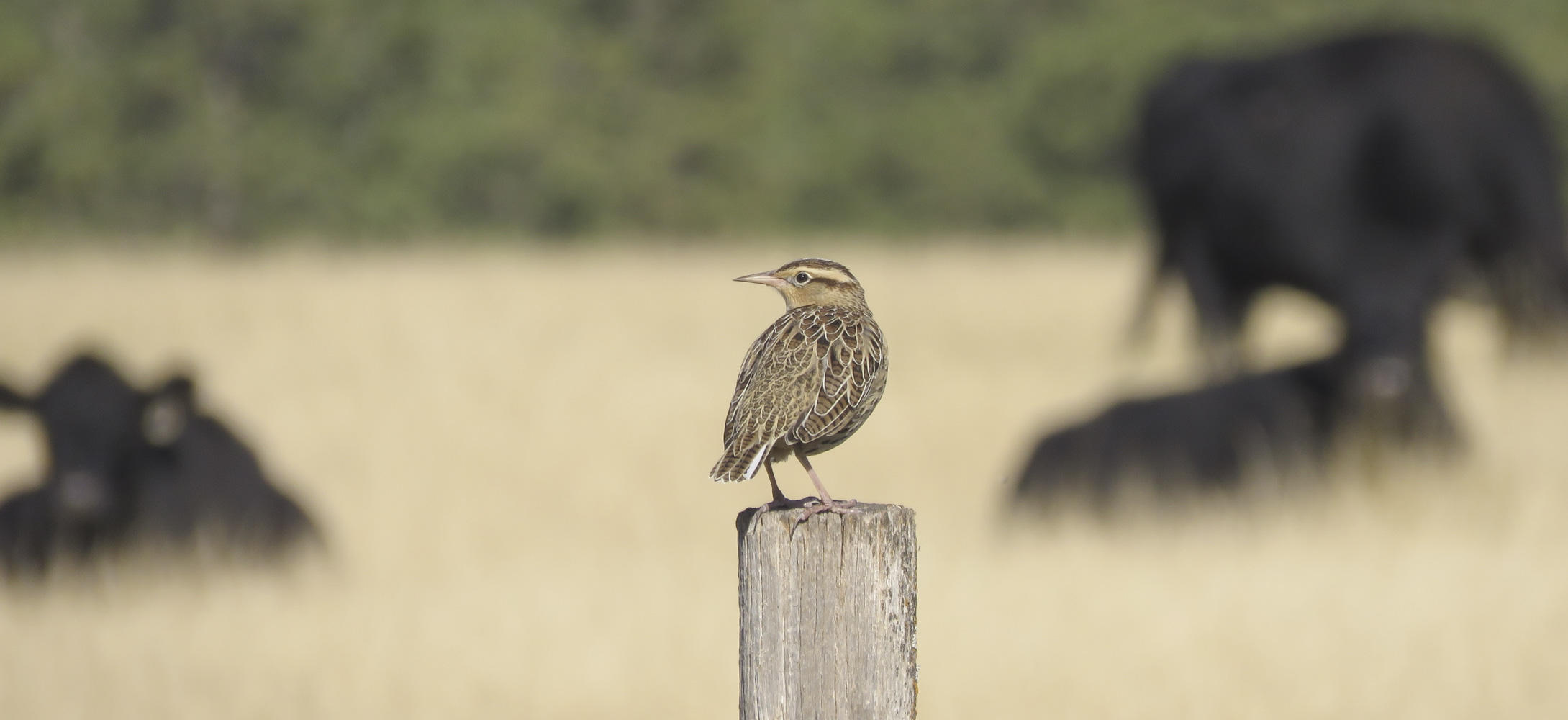The National Audubon Society created the Audubon Conservation Ranching Inititaive in response to steep declines in grassland bird populations. Our certification seal empowers consumers to select products that come from lands where better management practices foster diverse bird habitat, healthy soils, abundant pollinators, and cleaner waters.
Habitat Management
Each farm or ranch must be managed for bird habitat according to three levels of protocols, including general habitat protocols that apply to all sites, regional protocols that are specific to states or ecoregions, and ranch-specific management requirements. Each rancher will help to create a Habitat Management Plan that is uniquely developed for their operations to address site-specific habitat goals and bird conservation opportunities.
Forage and Feeding
Livestock must be able to freely graze in open grasslands. The protocols prohibit the use of antibiotics and animal byproducts. Our certified ranches ensure that the animals never visit a feedlot, therefore are never fed GMO corn or injected with hormones or antibiotics to stimulate their growth.
Animal Health and Welfare
Participants must demonstrate a commitment to properly caring for livestock by adhering to livestock production methods that reflect best practices for animal health and welfare. Persons who willfully mistreat animals will not be tolerated in this initiative.
Ecological Health
The initiative seeks to demonstrate that cattle ranching can be compatible---and indeed integral---to a healthy natural environment. Bird conservation is the ultimate goal of the certification, but this comes with the expectation that ranch management practices will lead to broad benefits to all wildlife that are part of grassland ecosystems. Protocols ensure that ranching practices will result in cleaner streams, healthier soils, more pollinators for plants, and more carbon stored in plants and the soil.
Your Health
Beef from Audubon-certified ranches is hormone and antibiotic-free. Grass-fed beef may also have some heart-health benefits, including:
- Less total fat
- More heart-healthy omega-3 fatty acids
- More conjugated linoleic acid, a type of fat that's thought to reduce heart disease and cancer risks
- More antioxidant vitamins, such as vitamin E
What is “Grass-Fed?”
Not all beef labeled “grass-fed” is the same, or what it appears to be.
-
Beef from cattle that have been grass-fed and then brought to a feedlot and fed corn, antibiotics, and hormones for their final months can still be labeled Grass-Fed.
- Beef from cattle that ate only grass their entire lives but were injected with vitamins, antibiotics, or growth hormones can be labeled Grass-Finished.
- Beef from cattle that have never received antibiotics or growth hormones can be labeled Naturally Raised (“Natural”) but could be either grass-fed or grain fed.
Without knowing the feeding history of the animal from which the meat was taken, it is impossible for a consumer to know exactly what a package label implies. That's where Audubon and our third-party verification partner, Food Alliance take over. Our producers must pass a rigorous third-party verification to ensure that Audubon Certified Ranches live up to the highest standards for habitat.



